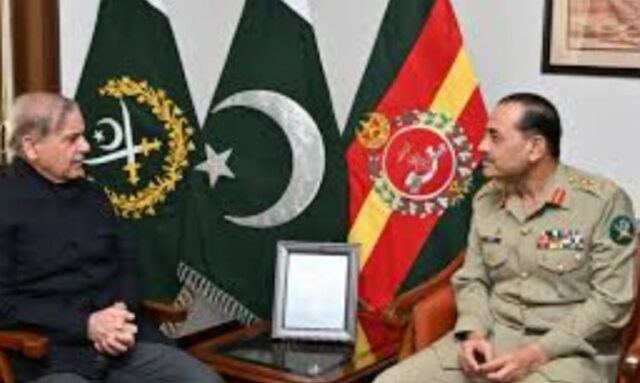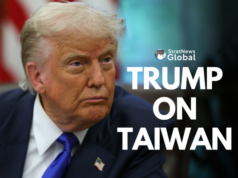
Democracy in Pakistan hasn’t fallen to a coup this time. It’s been buried by consent.
The 27th Constitutional Amendment, now before parliament, does what decades of generals and juntas never quite managed — it gives military rule constitutional legitimacy.
The bill abolishes the Chairman of the Joint Chiefs of Staff Committee and creates a new Chief of Defence Forces, a role that will be held by the Army Chief. He will command all three services. Article 243, which once placed the armed forces under civilian authority, will be rewritten. Once that happens, Pakistan’s army won’t just control the state; it will be the state.
No civilian government in Pakistan’s history has ever completed a five-year term. Every prime minister since 1947 has been dismissed, exiled, jailed, assassinated, or pressured out. The military has ruled directly for over three decades and indirectly for the rest. Civilian governments have been placeholders between coups. This amendment simply admits it.
General Asim Munir, recently promoted to Field Marshal, already runs the country. The 27th Amendment will now make that official. It’s not a coup. It’s certification. And it’s being handed to him by politicians who no longer pretend to be in charge.
Once this passes, parliament will be ornamental. The courts will comply. And the Constitution, once a check on power, will become its excuse. Pakistan will have a civilian façade with a military core, a republic in uniform.
For India, the implications are real. The civilian buffer that sometimes softened Pakistan’s security reflex is gone. Every border incident, every diplomatic exchange, every crisis will now be managed by generals. The army’s calculus is military, not political. It prizes control, not compromise.
The new Chief of Defence Forces will also oversee Pakistan’s nuclear command. Civilian oversight, already token, disappears completely. That makes future crises riskier and communication harder. When the chain of command is entirely military, the margin for misjudgement widens.
It will also freeze regional diplomacy. Trade, cultural exchange, water sharing — all of it will now be filtered through a national security lens. For Pakistan’s military, politics and threat perception are the same thing.
And this move won’t stay within Pakistan’s borders. When a major South Asian state codifies military rule, it sends a signal across the region: democracy is optional, stability is supreme. That’s the message others may find tempting. India should see and treat Pakistan for what it now is, or perhaps always was: a military state with a constitutional mask.
Dialogue should be transactional, not hopeful. Diplomacy should expect the generals, not the civilians, to call the shots. Deterrence must be steady; expectations, low.
At the same time, India should reinforce democratic partnerships around the neighbourhood. Civilian control of the military isn’t weakness; it’s the foundation of stability.
But the Pakistani military’s deep entanglement in the nation’s economic and civil life makes a separation of the two almost impossible. The military operates a vast commercial and civil empire through organisations like the Fauji Foundation, Army Welfare Trust (AWT) / Askari Group, Shaheen Foundation, Bahria Foundation, and Defence Housing Authorities (DHAs).
While technically established as “welfare” or “charitable” trusts for ex-servicemen, these entities function as powerful, tax-exempt conglomerates that permeate and often dominate significant sectors of the economy, from financial services (Askari Bank) and manufacturing (Fauji Fertilizer Company) to extensive education systems, food distribution, healthcare facilities, and major real estate developments.
These entities collectively establish the military as the largest landholder and one of the most powerful economic actors in the country. This profound economic and institutional entrenchment suggests that the military’s influence is not merely a political phenomenon but an integral, systemic part of Pakistan’s societal and economic infrastructure.
Consequently, calls for a clear separation of civil and military affairs face the immense challenge of disentangling a complex web of interests that renders such a division almost infeasible.
The 27th Amendment will be sold in Islamabad as a matter of efficiency and national interest. It’s neither. It’s martial law, legalised.
For decades, Pakistan’s army toppled governments to “save” the country. Now it won’t need to. The law will do the job. Democracy there isn’t collapsing in chaos. It’s being signed out of existence, one amendment at a time.
In a career spanning three decades and counting, Ramananda (Ram to his friends) has been the foreign editor of The Telegraph, Outlook Magazine and the New Indian Express. He helped set up rediff.com’s editorial operations in San Jose and New York, helmed sify.com, and was the founder editor of India.com.
His work has featured in national and international publications like the Al Jazeera Centre for Studies, Global Times and Ashahi Shimbun. But his one constant over all these years, he says, has been the attempt to understand rising India’s place in the world.
He can rustle up a mean salad, his oil-less pepper chicken is to die for, and all it takes is some beer and rhythm and blues to rock his soul.
Talk to him about foreign and strategic affairs, media, South Asia, China, and of course India.




